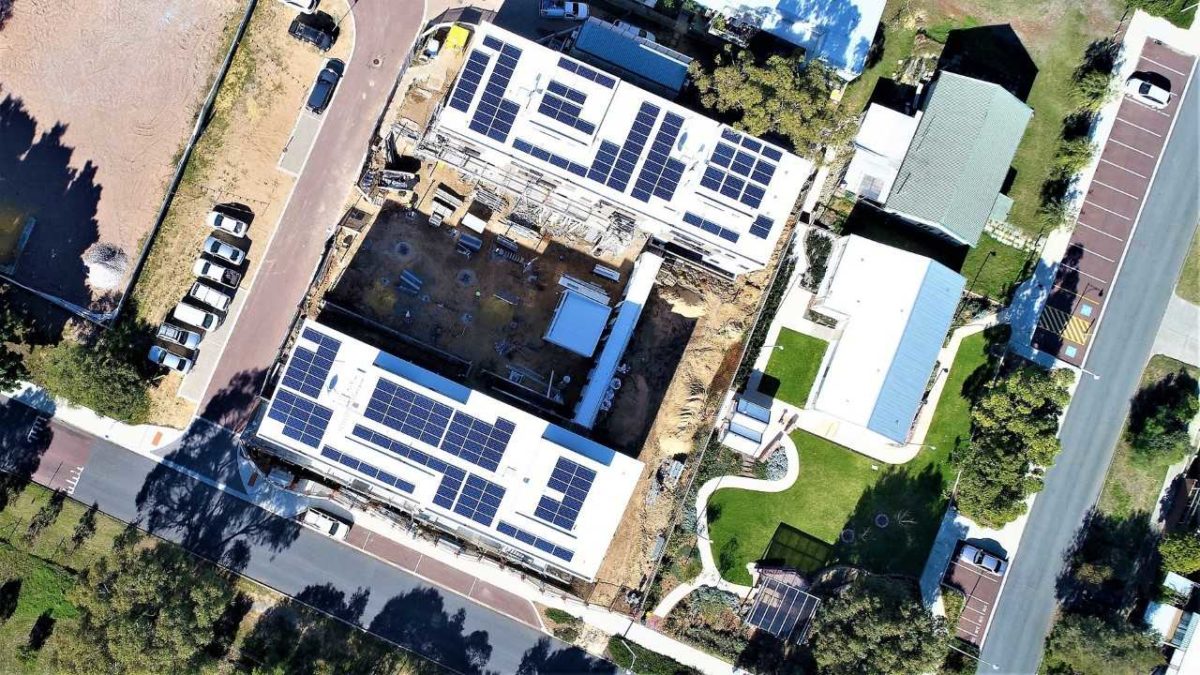Perth-based blockchain developer Power Ledger will apply its blockchain technology for solar energy trading between residents across Yolk’s Evermore apartment development at White Gum Valley, Western Australia.
This will be the first apartment development in Australia for sale to the public utilizing the combination of solar PV panels, battery storage and blockchain technology.
The first commercial deployment of Power Ledger’s P2P energy trading platform on existing solar households took place earlier this year in partnership with energy solutions business Greenwood Solutions in Melbourne, Victoria. In addition, Power Ledger has been involved in another project based in Fremantle, which won Federal funding of $2.57 million as part of its sustainable living innovation initiative.
It has been forecast the 53.6kW solar system with 150kW of battery storage at Evermore will produce approximately 80% of the apartments’ power, with residents expected to benefit from a 30% saving on their electricity bills.
“Power Ledger’s blockchain technology, paired with the other power-saving initiatives at Evermore, gives residents exceptional control over their power usage and power costs, with residents only paying for the energy they need and on-selling excess energy to neighbors, always taking advantage of discounted rates,” says Yolk Property Group Director Tao Bourton.
With the reduced reliance on grid supply, residents will be less effected by fluctuations in energy prices, while selling excess solar electricity to their neighbors at peak demand times, rather than selling it back to Western Power for the roughly $0.07/kWh tariff – key to reducing electricity bills.
“This results in residents being circa 21 cents per kWh better off,“ Bourton tells pv magazine Australia.
“The majority of solar energy is produced between 9am and 3pm. During this time, most residents aren’t using their power and residents would be selling to Western Power at the 7.2c/kWh rate. At Evermore, solar power is stored in the battery system for use later in the day. If it wasn’t for the battery, residents would be selling at the 7.2c/kWh rate and buying during the evenings at the Synergy rate (28.3272),“ he explains.
In addition, the development includes other initiatives such as: real-time measurement and recording of water and power consumption to ensure maximum energy-efficiency; a clever dual building design to deliver north-facing living spaces and balconies across all apartments, with passive design principles; site-wide bore; electric vehicle charging point; communal bicycles and bicycle repair station; three-bin system to divert an expected 60% of waste from landfill; communal compost tumblers and communal vegetable garden.
Piloting Australia’s first apartment complex to offer P2P power trading, Yolk Property Group has created a new structure within strata bylaws, now used by the State Government, which will be used as a template for future development.
The Evermore project is part of a pilot project aimed at developing governance models to allow shared solar PV, battery and monitoring systems to be used in medium density apartments. The governance models are tested at 50 units of the White Gum Valley development in Perth, under the leadership of Curtin University, in partnership with LandCorp, Solar Balance, Australian Renewable Energy Agency (ARENA), Low Carbon Living Cooperative Research Centre and Commonwealth Scientific and Industrial Research Centre (CSIRO).
ARENA provided a $280,000 grant to aid Yolk Property Group deliver the project.
The property developer has announced that six of the 24 apartments are still available for sale, with prices starting at $409,500.
The article was updated on 14/8/2018 to include new information provided by the developer that prices start at $409,500, and not at $349,000 as previously reported.
This content is protected by copyright and may not be reused. If you want to cooperate with us and would like to reuse some of our content, please contact: editors@pv-magazine.com.









1 comment
By submitting this form you agree to pv magazine using your data for the purposes of publishing your comment.
Your personal data will only be disclosed or otherwise transmitted to third parties for the purposes of spam filtering or if this is necessary for technical maintenance of the website. Any other transfer to third parties will not take place unless this is justified on the basis of applicable data protection regulations or if pv magazine is legally obliged to do so.
You may revoke this consent at any time with effect for the future, in which case your personal data will be deleted immediately. Otherwise, your data will be deleted if pv magazine has processed your request or the purpose of data storage is fulfilled.
Further information on data privacy can be found in our Data Protection Policy.